Peanut butter holds a special place in many dog owners’ hearts, serving as a versatile treat for stuffing Kongs, hiding pills, or simply spreading on a lick mat. Freezing it can extend the enjoyment, providing a delightful and long-lasting distraction for most canine companions. However, not all peanut butter is created equal when it comes to canine consumption. As a responsible dog owner, understanding which peanut butter is safe for your furry friend is crucial. This guide will help you identify dog-safe options, understand the risks of unsuitable types, and explore healthy alternatives. For a broader understanding of what human foods are generally safe, you can explore what human food can you give a puppy.
What to Look for in Dog-Safe Peanut Butter Brands
When selecting peanut butter for your dog, simplicity is key. The best choices are natural varieties without added sugars or artificial sweeteners. It is vital to scrutinize ingredient labels carefully. Prioritize brands that explicitly state “no added salt” or “unsalted” to avoid excessive sodium intake for your dog. Ingredients like preservatives, hydrogenated vegetable oils, and added sugars are detrimental to canine health and should be avoided. Ideally, dog-safe peanut butter should contain no more than two ingredients: peanuts and salt.
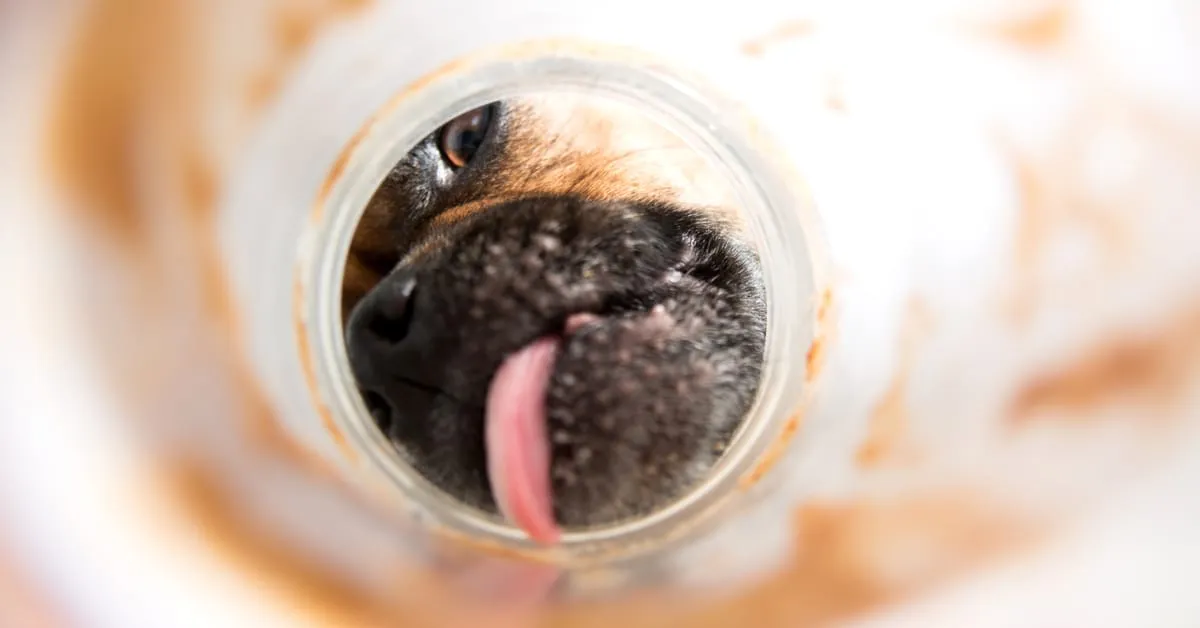 A glass jar of peanut butter with a wooden spoon, indicating dog-safe ingredients
A glass jar of peanut butter with a wooden spoon, indicating dog-safe ingredients
Dangers of Xylitol and Birch Sugar for Dogs
Xylitol is an exceptionally dangerous ingredient often found in “sugar-free” products, including chewing gums, candies, and some peanut butter brands. It is also known as “birch sugar,” so both terms must be looked for on ingredient lists. Never purchase sugar-free peanut butter for your dog, as xylitol is highly toxic to canines. Dogs who ingest foods containing xylitol can rapidly suffer from severe health complications, including hypoglycemia ( dangerously low blood sugar), seizures, liver failure, and even death. If you suspect your dog has consumed anything with xylitol, seek immediate veterinary care, as it can be absorbed very quickly into their system.
Safe Peanut Butter Brands for Dogs
Identifying reputable brands ensures your dog enjoys a safe and delicious treat. Dog Lab, a respected company that evaluates pet products by consulting veterinarians, canine nutritionists, and dog owners, rigorously tested over 50 types of peanut butter. Their research aimed to pinpoint the healthiest options for dogs. Their top recommendation for the best peanut butter for dogs is Whole Foods’ 365 brand smooth peanut butter. The 365 Everyday Value Organic Peanut Butter stands out for its minimal ingredient list—simply 100% peanuts, with no added salt, sugar, or unnecessary additives. This minimalist approach ensures pure, natural creamy peanut butter for your pet.
Another excellent and budget-friendly alternative with a similar ingredient profile is Trader Joe’s No Salt Peanut Butter. For dogs who appreciate a bit of texture in their treats, Teddie Super Chunky Peanut Butter was identified as a safe crunchy option for both humans and their canine companions. Additionally, brands like Poochie Peanut Butter are specifically formulated for dogs, often incorporating beneficial natural ingredients such as turmeric, flaxseed, parsley, and ginger to boost health. These specialized brands often contribute a portion of their profits to animal shelters, offering a win-win for pets and the community. For a more extensive list of tested and safe peanut butter options, consulting resources like DogLab.com can provide valuable insights.
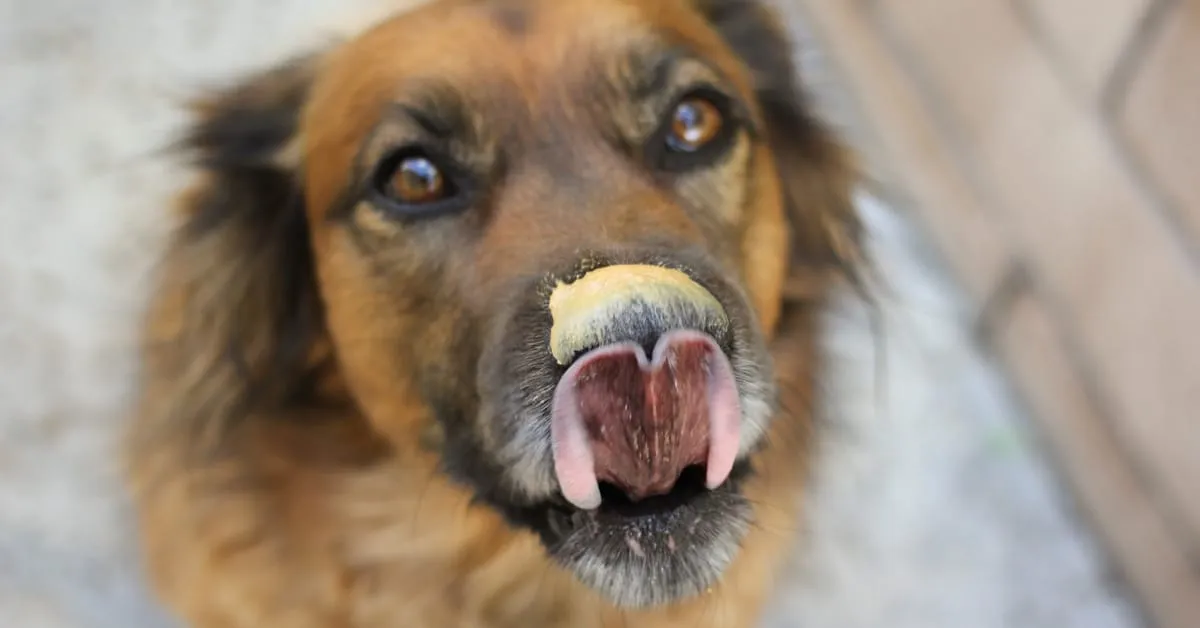 A dog's nose sniffing a jar of dog-safe peanut butter
A dog's nose sniffing a jar of dog-safe peanut butter
Important Considerations: Moderation is Key
While peanut butter contains healthy fats that can be beneficial, it is crucial to offer it to your dog in strict moderation. Overconsumption of high-fat foods and excess calories can lead to canine obesity and serious health issues like life-threatening pancreatitis. Even dog-safe peanut butter can be detrimental to your dog’s health if given too frequently or in large quantities. Remember that treats should only constitute about 10% of your dog’s daily caloric intake, with the majority of their nutrients coming from their balanced kibble. Knowing what foods you can feed your dog in general can help maintain a healthy diet.
Peanut Butter Brands to Avoid for Your Dog
Many common grocery store peanut butter brands, despite being staples in human diets, are not suitable for dogs. These products often contain harmful additives like trans fats, artificial sweeteners, corn syrup, and other unnecessary ingredients. Pet owners should never share the following widely available peanut butter brands with their dogs: Skippy peanut butter, Peter Pan brand PB, Jif peanut butter, Nuts ‘n More, Krush Nutrition, Go Nuts Co, and Amazon brand/Happy Belly PB.
It’s important to note that a peanut butter product being “xylitol-free” does not automatically mean it’s safe for dogs. Some “natural” peanut butters, such as Skippy Natural or Jif Natural, might be free of xylitol but are still not recommended due to other additives like corn syrup and trans fats that are unhealthy for dogs. Furthermore, even some pet-specific brands can be problematic. Dog Lab’s research highlighted that Kong Real Peanut Butter, for instance, contains sugar and hydrogenated vegetable oil, while DogButter includes palm oil, both of which are best avoided for your dog’s health. Understanding what food a dog cannot eat is vital for their well-being.
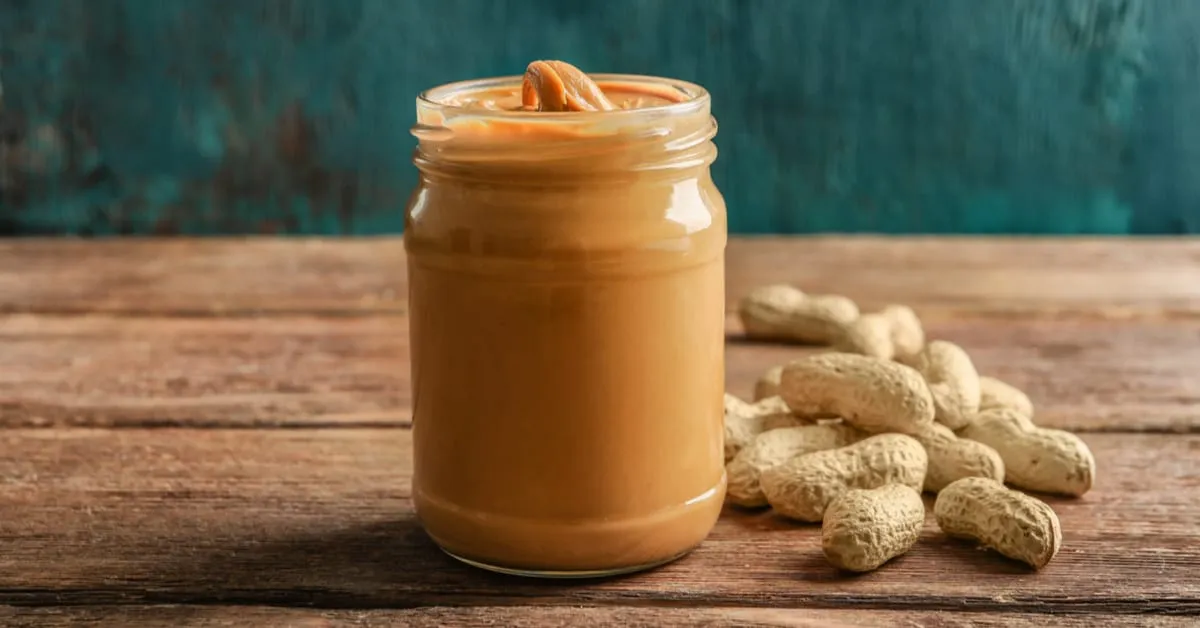 Three different jars of peanut butter on a shelf in a grocery store
Three different jars of peanut butter on a shelf in a grocery store
Homemade Peanut Butter: A Safe DIY Option
For those who want complete control over their dog’s treats, making homemade peanut butter is a simple and healthy option. All you need are peanuts and a food processor. Simply add unsalted peanuts to the food processor and process for up to 10 minutes, or until a smooth, creamy consistency is achieved. Creating your own peanut butter ensures you know exactly what ingredients your dog is consuming, free from hidden sugars, salts, or artificial additives.
Peanut Butter Alternatives for Dogs
Not all dogs enjoy peanut butter, or some may have allergies. Fortunately, there are many safe and healthy alternatives. Other nut butters like almond butter, sunflower seed butter, and cashew butter are generally considered safe for dogs, provided they are unsalted and xylitol-free. However, these alternatives are also high in fat and should be given in moderation, adhering to the 10% treat rule for your dog’s diet.
Beyond nut butters, several nut-free options can be used for stuffing toys or as healthy snacks. These include low-fat plain Greek yogurt, cream cheese, pumpkin puree, green beans, watermelon, and even certain baby foods. These alternatives offer variety and essential nutrients without the high-fat content of nut butters. Specifically, understanding what can Bichon Frise not eat is helpful if you have this breed.
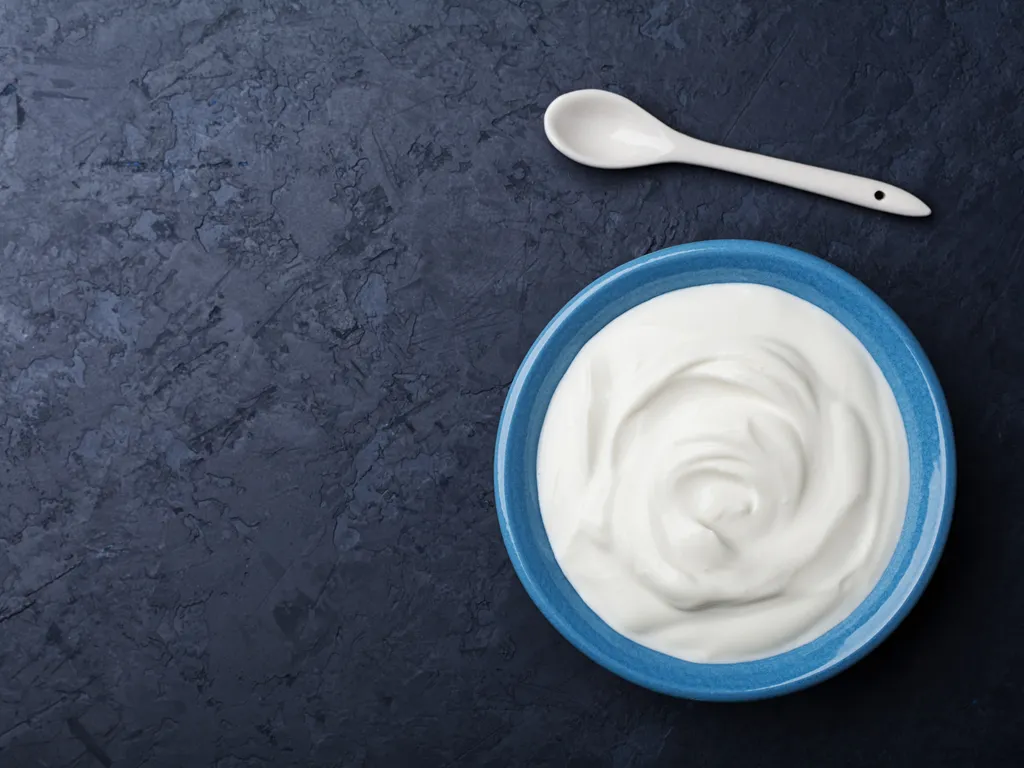 A dog looking at a bowl of plain Greek yogurt
A dog looking at a bowl of plain Greek yogurt
Nuts to Avoid
While some nuts are safe in moderation, several nuts are unhealthy or toxic to dogs and should be completely avoided. These include hazelnuts, macadamia nuts, pecans, walnuts, and pistachios. Always ensure that any food you offer your dog is safe and free from these harmful ingredients. For more information on safe human foods, consider reading what human food can i feed my dog.
Best Dog Toys for Treat Stuffing
Treat-stuffing toys are excellent tools for mental enrichment and can keep your dog happily occupied. They are perfect for dispensing dog-safe peanut butter, yogurt, pumpkin puree, or other healthy alternatives. These toys challenge your dog to work for their treats, providing mental stimulation and helping to alleviate boredom. Popular options include durable rubber toys with cavities, puzzle feeders, and lick mats that extend the enjoyment of softer treats.
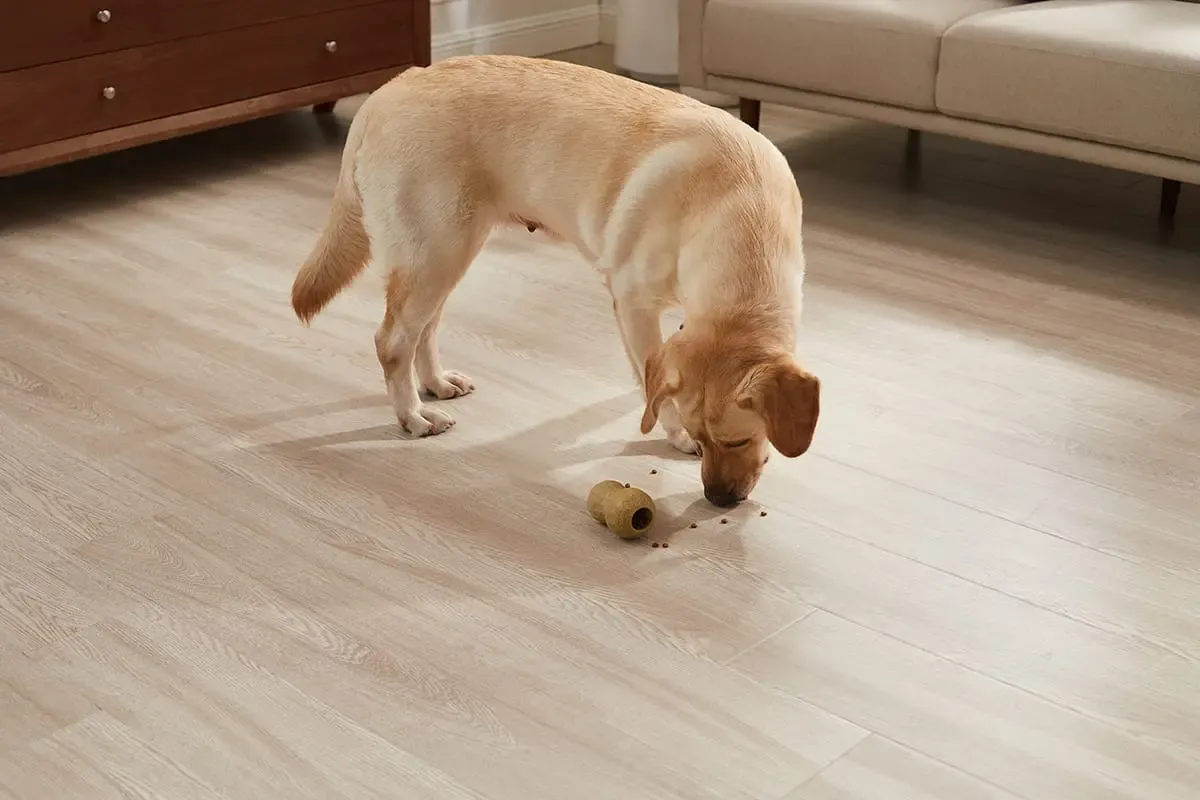 A treat-dispensing dog toy filled with peanut butter
A treat-dispensing dog toy filled with peanut butter
Conclusion
Providing your dog with peanut butter can be a delightful and enriching experience, but it requires careful attention to ingredients. Always prioritize natural, unsalted peanut butter free from xylitol, birch sugar, and other artificial additives. Brands like Whole Foods 365, Trader Joe’s No Salt, and Teddie Super Chunky are generally safe choices, along with specialized dog-specific peanut butters. Remember that moderation is crucial to prevent health issues like obesity and pancreatitis. Explore homemade options and diverse alternatives such as Greek yogurt or pumpkin puree to vary your dog’s treats safely. By staying informed and vigilant, you can ensure that this beloved treat remains a happy and healthy part of your dog’s diet.
References:
“No Added Salt” or “Unsalted” for giving pills. (2018). Cummings School of Veterinary Medicine at Tufts University.
“Birch Sugar is the same thing as xylitol, and it’s toxic to dogs.” (n.d.). Colorado State University Veterinary Teaching Hospital.
Birch Sugar: The Deadly Ingredient Hiding in Plain Sight. (n.d.). Furtropolis by Outward Hound.
Dog Lab. (n.d.). Dog Lab.com.
Are Nut Butters Safe for Dogs? (n.d.). Rau Animal Hospital.
